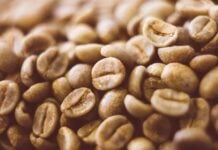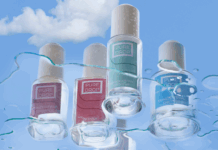Eight players in the cosmetics sector have joined forces to form "ADN & Cosmétique", an unprecedented consortium whose aim is to guarantee the best possible traceability of plant raw materials.
Using a scientific method based on DNA analysis, the consortium members plan to build the first reliable database to guarantee the botanical authenticity of the plant resources used in their products. This cooperative model meets consumers' expectations for transparency and the UN's sustainable development objectives. The members of this consortium are recognized players wishing to commit to more secure supplies and controlled exploitation of plant resources.
Guaranteeing the authenticity of plant raw materials for cosmetics through DNA analysis
When buying natural raw materials, how can you be sure you're buying the right plant (guaranteeing botanical family, genus and species)?
Securing supplies is one of the key challenges facing the consumer goods industry, and the cosmetics industry in particular, in line with consumers' growing expectations in terms of safety, authenticity and transparency, in line with the implementation of the Nagoya protocol. DNA analysis technology enables just such traceability. For example, it can be used to distinguish between white lilies (Lilium candidum) and royal white lilies (Lilium regale).
Scientific work on lavender, an emblematic species in the cosmetics and perfume sectors, is being undertaken by the Consortium.
Meeting sustainable development objectives
The cosmetics groups and ingredient suppliers in this consortium share the same values of rigor and respect for the consumer and the planet, and have decided to work together to contribute to the common good.
This unprecedented collaborative initiative meets 3 of the 17 MDGs established by the UN to enable companies to take concrete action to accelerate the ecological and inclusive transition, while contributing to the health of all by guaranteeing the absence of fraud in raw materials.
MDG 3: Good health and well-being
DNA analysis allows us to better secure the supply of plant raw materials and thus prevent health risks for consumers.
SDG 12: Responsible consumption and production.
DNA analysis enables us to better secure the production chains of plant raw materials and thus promote sustainable production methods.
ODD 17: Partnerships to achieve the goals
DNA analysis enables us to better secure the production chains of plant raw materials and thus promote sustainable production methods.
Consortium members
Clarins Laboratories
Codif Natural Technology
Greentech
L'Oréal Research & Innovation
LVMH Research
Nuxe Group
Sederma
DNA Gensee
Initiated in 2018 by DNA Gensee (an innovative genetics VSE founded in 2012, based in Savoie-France), an expert in DNA analysis of plants, algae and beehive products, the "DNA & Cosmetics" Consortium aims to provide models for the cosmetics/perfume sector to ensure the safety of plant raw materials and enable better control of natural resources from plant to consumer.
Cooperation between competing players in the chain who share the same conviction, as well as their knowledge and know-how, enables progress to be made towards more ethical, more sustainable and, consequently, safer production models.








